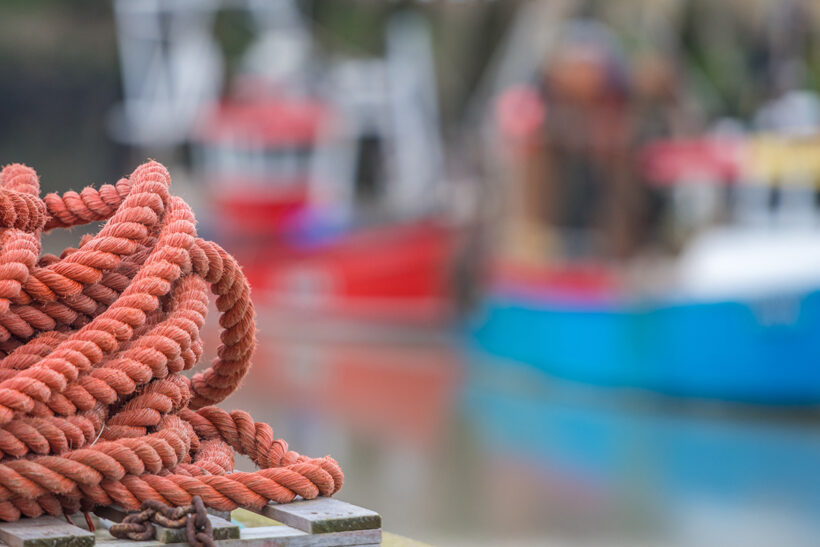Bord Iascaigh Mhara (BIM) issued letters of offer to 57 Irish fishing vessels last week under the Voluntary Permanent Cessation Scheme, funded under the Brexit Adjustment Reserve with an increased total budget of €75m.
The decommissioning scheme was a key recommendation of the Seafood Taskforce, established by minister for agriculture, food and the marine Charlie McConalogue to mitigate the impacts on the Irish fleet of the quota share reductions arising from the Brexit TCA. Its aim is to restore balance between fleet capacity and available quotas.
The Seafood Taskforce agreed a decommissioning target of approximately 60 whitefish and beam trawl vessels with a total capacity of 8,000 GT.
Approved applicants have until 8 February to accept their offer. Once an offer is taken up, vessel owners must surrender their fishing licences within an eight- week period and decommission their vessel, in a manner that is environmentally compliant, by 31 October this year.
Interim CEO of BIM Caroline Bocquel said: “Minister McConalogue has to date secured funding for a series of schemes arising from Seafood Taskforce recommendations to a value of €265m. These have been designed to support industry to adjust and restructure in the post-Brexit marketplace and sustain the coastal communities in which they are based.
“Decommissioning will strengthen the viability of the remaining fleet, providing a significant boost to the economics of those boats by making €34m of fish quotas available annually to the remaining 170 whitefish vessels.
“This scheme will ultimately help to put the sector on sounder financial footing, delivering a sustainable future for Ireland’s fishers, and restoring the profitability of a fishing sector that supports the economies of coastal communities.”
At a meeting with industry leaders last week, Charlie McConalogue announced that due to the level of interest from vessel owners and the calculations from BIM on the levels of direct payments required to meet the objectives of the decommissioning scheme, an increase in budget was required.
Additional funds have therefore been obtained from the Department of Public Expenditure and Reform, as well as updated EU State Aid approval.
“In order to ensure that all fishers who wished to take part in the scheme could do so and that the targets set by the taskforce could be delivered, I have increased the budget for direct payments under the scheme from €60m to a maximum of €75m, with tax reliefs increasing proportionately,” he told the meeting.
“I am satisfied that I have now enabled all those who have chosen to apply for this scheme receive the full value of the scheme payment, as guided by the Seafood Taskforce recommendation.”
Offer terms ‘an absolute scandal’
‘Dismay and disappointment’ has been the initial reaction among Irish vessel owners offered scrappage terms under Ireland’s voluntary whitefish decommissioning scheme, reports Lorna Siggins.
Irish fishing industry representatives who were in Brussels last week for the resumed EU-Norway talks said they had received a number of calls from very upset vessel owners.
“We haven’t surveyed members yet as this is anecdotal, but we are hearing of dismay and disappointment,” Irish Fish Producers’ Organisation (IFPO) chief executive Aodh Ó Donnell said.
“We are calling for immediate additional engagement by and clarification from Bord Iascaigh Mhara on this. The disappointment is quite widespread among our members.”
Irish South and West Fish Producers’ Organisation
(IS&WFPO) chief executive Patrick Murphy said that it was an ‘absolute scandal’ that some applicants had received offers well below the market price of their vessels.
“This represents the latest in a series of victimisations of Irish fishermen – losing waters on EU access, losing quota due to Brexit, and now our government, which doesn’t have to spend a penny of exchequer money on this, trying to force people to accept derisory offers,” he said.
Patrick Murphy said he had heard from several vessel owners who had been offered well below the lowest ceiling per gross tonne (GT).
The decommissioning scheme proposed paying applicants a basic rate of €3,600 per GT, and a ‘catch incentive premium’ of up to €8,400 per GT for quota species covered under the TCA.
This was to be calculated by
indexing total vessel landings of quota stocks against the maximum total landings of quota stocks by any one vessel within each segment.
“When we saw the terms and criteria for decommissioning we said it was wrong as we felt it wasn’t going to be fit for purpose,” Patrick Murphy said.
“Now we see that not only are the criteria unworkable, but they are contradictory. For instance, penalising a vessel on its age when it might be more successful than a younger vessel.
“The increased funding by the minister is not enough, and it is ironic that crew will do better out of this in some cases than vessel owners.
“It is immoral to roll out something like this when some people are unable to pay mortgages. One man was told that the decision to accept was not his, but the bank manager’s.”
This story was taken from the latest issue of Fishing News. For more up-to-date and in-depth reports on the UK and Irish commercial fishing sector, subscribe to Fishing News here or buy the latest single issue for just £3.30 here.






